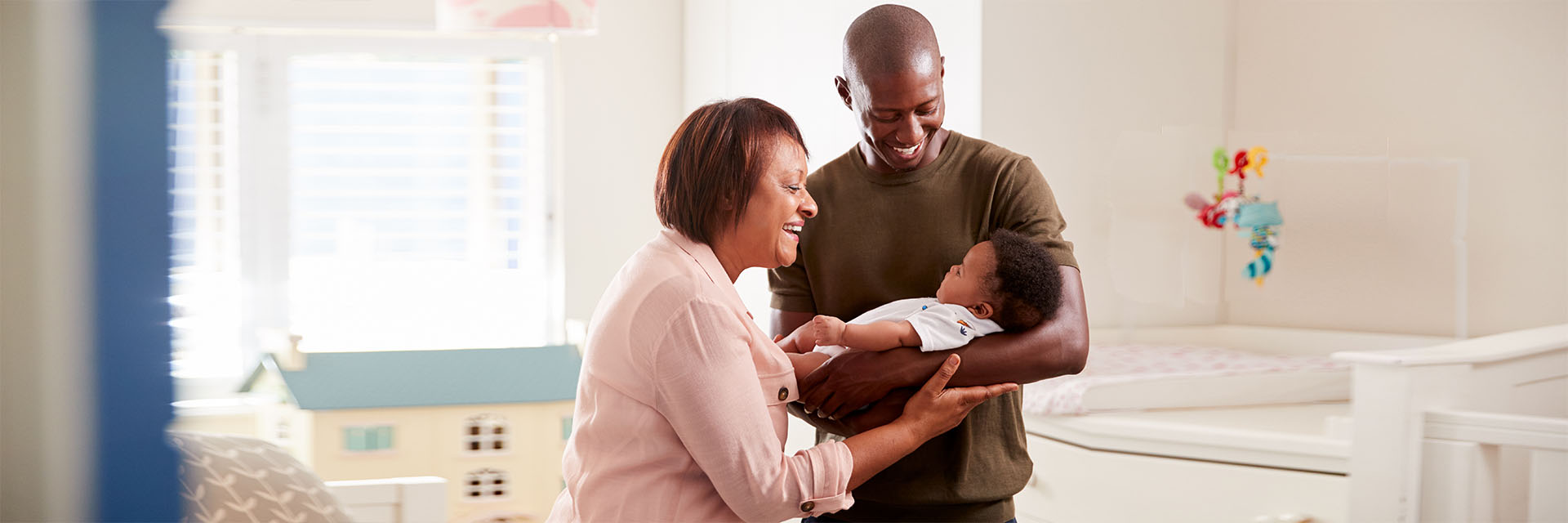There might not be anyone more excited for the arrival of your bundle of joy than its grandma and grandpa. They’re more than willing to help out any way they can, and why wouldn’t you let them? After all, they raised you and you’re pretty great! But a new study suggests that grandma and grandpa may need a little bit of a refresher before baby comes.
Research by Northwell Health reveals that many grandparents practice outdated health and parenting methods while raising their grandchildren, which could potentially pose serious risks.
Although children haven’t changed, what we know about caring for them has. In the decades since today’s grandparents raised their own children, parenting practices and health beliefs have evolved, which many grandparents may not be aware of, says Ashley Gair, M.D., board-certified pediatrician at West Plano Pediatrics and physician on the medical staff and former chair of the Pediatrics Department at Texas Health Presbyterian Hospital Plano.
“Of course, things evolve over time and some things have changed since grandparents were raising their children, such as the Back to Sleep® campaign, no further use of syrup of ipecac, and the use of car seats. Some recommendations have even changed in the last few years,” she says.
For example, the study discovered that 44 percent of the grandparents they questioned mistakenly believed that giving a child an ice bath was an effective way to bring down a fever, when in fact ice baths pose a hypothermia risk. Also, more than two-thirds said cuts heal better without a bandage, even though covering a wound keeps out harmful bacteria.
In addition, nearly a quarter of surveyed grandparents were also unaware that infants should not be put to sleep on their stomach or side, which is a major risk factor for sudden infant death syndrome (SIDS).
Various Texas Health hospitals offer Grandparents 101. The class covers what has changed in prenatal care and birth, childcare and how to keep your grandchildren safe. In addition, the class also teaches participants how to support their own children and their partner as they step into parenthood.
Just a few of the things grandparents will learn about are during the three-hour class are:
- The meaning of becoming a grandparent
- Childproofing
- First aid
- Car seat safety
- Consent/Power of Attorney
- Infant CPR/choking
- Basic newborn care
- How to support a breastfeeding mom
- Postpartum issues
“Sometimes grandparents-to-be enter the class with the idea that they raised their own children, so how much different can it be today,” says Jessie Prim, a childbirth educator on the staff at Texas Health Plano. “All of our grandparents leave with a sense of learning quite a bit, especially with all the changes that have occurred. The practicing of CPR and choking also really helps them to feel safer, especially if they are going to provide part of the care for their grandchild or grandchildren.”
In addition to the class, Dr. Gair suggests bringing grandma and grandpa to the pediatrician to learn more information and have any of their questions answered.
“Well-visits are about more than vaccines. In fact, pediatricians are monitoring growth, reviewing development and discussing developmentally appropriate guidance and advice,” she says. “If grandparents are available, bring them to your child’s well visit and offer them any reading material that your pediatrician gives you.
“There are numerous benefits to having grandparents actively involved in the daily lives of their grandchildren, and if at any point you or your child’s grandparents have questions, call the pediatrician’s office and ask them for advice.”
To find a pediatrician near you, visit TexasHealth.org. To sign up for Grandparents 101 or any other classes, please visit TexasHealth.org/Classes.

